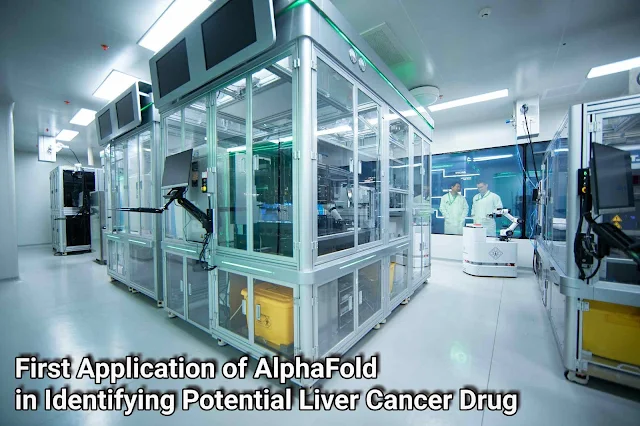A new study uses AlphaFold to identify a potential new treatment for liver cancer
The application of AlphaFold in identifying potential liver cancer drugs has been making waves in the medical community. A new study published in Chemical Science, "AlphaFold Accelerates AI-Powered Drug Discovery: Efficient Discovery of a Novel Small Molecule Inhibitor CDK20," applied AlphaFold to an AI-powered comprehensive drug discovery platform, Pharma.AI, to identify a novel drug with a new target for the treatment of the most common form of primary liver cancer, hepatocellular carcinoma (HCC).
The study's senior authors, Alan Aspuru-Guzik, Ph.D., Michael Levitt, Ph.D., and Alex Zavoronkov, Ph.D., used the AlphaFold algorithm to predict the 3D structure of proteins involved in liver cancer, with the goal of identifying potential drug targets. The AI-driven drug discovery process identified the new drug to a target with no known crystal structure, with unprecedented efficiency. This is the first report of an AlphaFold application to identify a confirmed hit to a novel target in early drug detection.
The success of this study is a testament to the power of AI in transforming the drug discovery process. By combining the predictive power of AlphaFold with the targeting power and drug design of Insilico Medicine's Pharma.AI platform, the researchers were able to identify a potential new treatment for liver cancer with speed, efficiency, and improved accuracy.
"This paper shows that for healthcare, AI developments are more than just the sum of their parts," said Aspuru-Guzik. "If one uses a generative model that targets a protein derived from AI, it can greatly expand the range of diseases that we can target. If one adds self-driving labs to the mix, we will be in uncharted territory."
The medical community is excited about the potential of AI in drug discovery and development, with AlphaFold leading the way. Its ability to predict protein structures with high accuracy enables researchers to design drugs that specifically target disease-causing proteins, potentially leading to more effective treatments for patients. With the continued advancement of AI in this field, we may be on the cusp of a new era of AI-powered drug discovery.
The AI-driven drug discovery process identified the new drug to a target with no known crystal structure, with unprecedented efficiency.
Alphafold is a computational method used for predicting the 3D structure of proteins from their amino acid sequences. It is a machine learning-based algorithm that uses information from a large database of known protein structures to make predictions about the structure of new proteins.
One of the key applications of Alphafold is in identifying potential drug targets for various diseases, including liver cancer. By predicting the 3D structure of proteins that are involved in the development and progression of liver cancer, researchers can identify potential drug targets that may be able to disrupt the disease process.
One specific example of the application of Alphafold in identifying potential liver cancer drugs is the prediction of the structure of the protein tyrosine kinase (PTK) family, which plays a critical role in the growth and progression of liver cancer. Alphafold can predict the structure of these proteins with high accuracy, enabling researchers to design drugs that specifically target and inhibit PTK activity.
Another potential application of Alphafold in liver cancer drug discovery is in identifying new drug targets by predicting the structure of proteins that are involved in the disease but are not yet well-understood. By predicting the structure of these proteins, researchers can gain insights into their function and potential as drug targets.
Overall, Alphafold represents a powerful tool for identifying potential drug targets for liver cancer and other diseases. Its ability to predict the 3D structure of proteins with high accuracy enables researchers to design drugs that specifically target the disease-causing proteins, potentially leading to more effective treatments for patients.
However, it is worth noting that the discovery of a new drug target is only the first step in the drug discovery process and the experimental validation of the predicted structure and its correlation with the disease is crucial to identify the true potential of a drug target.

